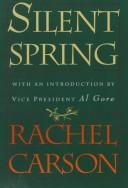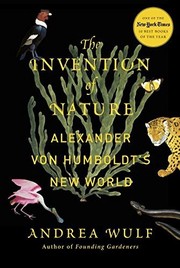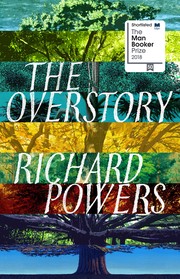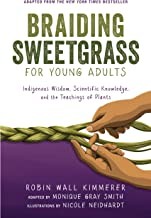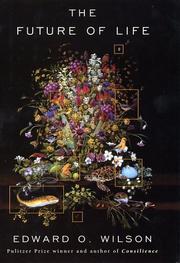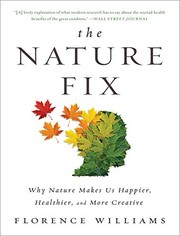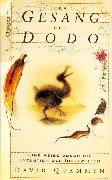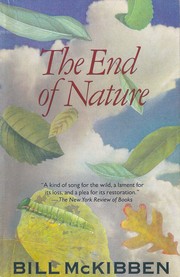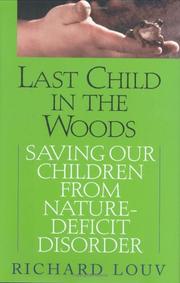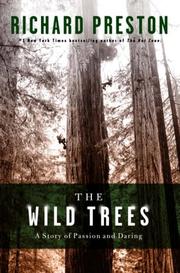Are you a conservation enthusiast looking for your next great read? Look no further! We’ve compiled a list of the 20 best books on conservation that will inspire, educate, and entertain. Whether you’re interested in wildlife preservation, environmental activism, or sustainable living, these books cover it all. From classics to contemporary works, this list has something for every bookworm passionate about protecting our planet. Get ready to dive into these captivating conservation books that will leave you feeling motivated to make a difference!
Contents
- 1 20 Best Books About Conservation
- 2 The Sixth Extinction: An Unnatural History
- 3 Silent Spring
- 4 The Hidden Life of Trees: What They Feel, How They Communicate
- 5 The Invention of Nature: Alexander von Humboldt’s New World
- 6 The Overstory
- 7 Braiding Sweetgrass: Indigenous Wisdom, Scientific Knowledge, and the Teachings of Plants
- 8 The Future of Life
- 9 The Nature Fix: Why Nature Makes Us Happier, Healthier, and More Creative
- 10 The Uninhabitable Earth: Life After Warming
- 11 The Soul of an Octopus: A Surprising Exploration into the Wonder of Consciousness
- 12 The Water Will Come: Rising Seas, Sinking Cities, and the Remaking of the Civilized World
- 13 The Song of the Dodo: Island Biogeography in an Age of Extinctions
- 14 The Sixth Extinction: Patterns of Life and the Future of Humankind
- 15 The Great Animal Orchestra: Finding the Origins of Music in the World’s Wild Places
- 16 The World Without Us
- 17 The Once and Future World: Nature As It Was, As It Is, As It Could Be
- 18 The End of Nature
- 19 Last Child in the Woods: Saving Our Children from Nature-Deficit Disorder
- 20 A Sand County Almanac
- 21 The Wild Trees: A Story of Passion and Daring
- 22 Conclusion
- 23
- 24 The 20 Ulysses S Grant Books: Best 2024 Update and Review
- 25 20 Anthropology Best Books to Read – The 2024 Edition
- 26 Best Books About Black Women. 2024 Edition
20 Best Books About Conservation
The Sixth Extinction: An Unnatural History
by Elizabeth Kolbert
The Sixth Extinction: An Unnatural History by Elizabeth Kolbert is a gripping exploration of the current mass extinction event taking place on Earth. This thought-provoking book delves into the causes and consequences of the extinction crisis, examining the impact of human activities on the planet’s biodiversity. Kolbert skillfully weaves together scientific research, historical anecdotes, and personal experiences to illustrate the interconnectedness of species and the fragility of our natural world. Through her compelling narrative, she emphasizes the urgent need for global conservation efforts to mitigate the ongoing loss of species and ecosystems. The Sixth Extinction is a must-read for anyone interested in environmental issues and a crucial addition to the conversation on the future of our planet. This book on conservation is a wake-up call to the importance of preserving our natural heritage for future generations.
Silent Spring
by Rachel Carson
Silent Spring, written by Rachel Carson, is a groundbreaking book on conservation that brought attention to the devastating impact of pesticides on the environment. First published in 1962, the book shed light on the widespread use of chemical pesticides and their harmful effects on wildlife, human health, and the ecosystem.
Carson’s eloquent and impassioned writing style captivated readers, sparking a powerful environmental movement and leading to the eventual ban of DDT and other harmful pesticides. Silent Spring is a poignant and influential book about conservation that continues to inspire and educate readers about the importance of protecting our natural world. Carson’s work is a timeless reminder of the delicate balance between human progress and the preservation of our planet.
The Hidden Life of Trees: What They Feel, How They Communicate
by Peter Wohlleben
The Hidden Life of Trees: What They Feel, How They Communicate by Peter Wohlleben is a fascinating exploration of the intricate world of trees. Wohlleben, a forester, shares his deep understanding of the forest and uncovers the hidden lives of trees, revealing their ability to communicate, form social networks, and even feel pain. This eye-opening book provides a new perspective on the natural world, highlighting the interconnectedness of all living things and the importance of preserving our forests. Whether you’re a nature enthusiast or simply curious about the wonders of the natural world, this conservation book will leave you with a profound appreciation for the intelligence and resilience of trees. Join Wohlleben on a journey into the heart of the forest and discover the remarkable hidden life of trees.
The Invention of Nature: Alexander von Humboldt’s New World
by Andrea Wulf
The Invention of Nature: Alexander von Humboldt’s New World by Andrea Wulf is a captivating biography that explores the life and legacy of the visionary naturalist Alexander von Humboldt. Wulf delves into Humboldt’s groundbreaking scientific discoveries and his pioneering approach to understanding the interconnectedness of nature. Through vivid storytelling, the book takes readers on a journey through Humboldt’s expeditions in South America and his influence on the world of science and conservation. This book is not just a biography, but a fascinating exploration of Humboldt’s impact on the modern understanding of the environment and the urgent need for conservation. Wulf’s narrative skillfully weaves together history, science, and adventure, making The Invention of Nature a must-read for anyone interested in the history of environmental thought and the importance of preserving our natural world.
The Overstory
by Richard Powers
The Overstory by Richard Powers is a breathtaking novel that weaves together the lives of nine disparate characters, all of whom are deeply connected to trees. This powerful and thought-provoking book on conservation explores the intricate and often overlooked relationships between humans and the natural world. Through its lyrical prose and richly drawn characters, it delves into the urgent need for environmental preservation and the devastating impact of deforestation. The Overstory is a profound meditation on the interconnectedness of all living things and the enduring power of nature. This conservation book is a compelling reminder of the vital role that trees play in sustaining life on Earth, and it will leave readers with a renewed sense of awe and reverence for the natural world.
Braiding Sweetgrass: Indigenous Wisdom, Scientific Knowledge, and the Teachings of Plants
by Robin Wall Kimmerer
Braiding Sweetgrass by Robin Wall Kimmerer is a captivating exploration of the intersection between indigenous wisdom, scientific knowledge, and the teachings of plants. Through a series of beautifully woven essays, Kimmerer shares her insights as a botanist and a member of the Citizen Potawatomi Nation, offering a unique perspective on our relationship with the natural world. The book delves into the importance of reciprocity and gratitude in our interactions with the environment, urging readers to consider the ethical implications of our actions. With a blend of personal anecdotes, traditional stories, and ecological observations, Braiding Sweetgrass encourages a deeper understanding of the interconnectedness of all living beings. This conservation book offers a thought-provoking and enlightening journey that will inspire readers to reevaluate their role in the preservation and stewardship of the Earth.
The Future of Life
by Edward O. Wilson
The Future of Life by Edward O. Wilson is a groundbreaking book about conservation that delves into the urgent need to protect the Earth’s biodiversity. Wilson, a renowned biologist, presents a compelling argument for the preservation of the world’s ecosystems and the countless species that inhabit them. Through captivating prose and scientific insight, he emphasizes the interconnectedness of all life forms and the devastating impact of human activities on the planet’s delicate balance. Wilson’s book on conservation serves as a wake-up call, urging readers to take action to prevent the irreversible loss of species and habitats. With a sense of urgency and optimism, The Future of Life is a must-read for anyone passionate about the environment and the future of our planet.
The Nature Fix: Why Nature Makes Us Happier, Healthier, and More Creative
by Florence Williams
The Nature Fix by Florence Williams is a captivating book about the profound impact of nature on our well-being. Through engaging storytelling and compelling scientific research, Williams explores how immersing ourselves in nature can make us happier, healthier, and more creative. From forests in Japan to national parks in America, the book delves into the restorative power of nature and its ability to alleviate stress, improve cognitive function, and boost our overall mental and physical health. With a focus on the intersection of neuroscience, psychology, and environmental conservation, The Nature Fix offers a compelling argument for the importance of preserving natural spaces for the benefit of humanity. Whether you’re a nature enthusiast or a skeptic, this book is sure to leave you with a newfound appreciation for the profound impact of the great outdoors.
The Uninhabitable Earth: Life After Warming
by David Wallace-Wells
The Uninhabitable Earth: Life After Warming by David Wallace-Wells is a thought-provoking exploration of the catastrophic effects of climate change on our planet. This gripping book on conservation paints a vivid and alarming picture of the future we face if we do not take urgent action to address global warming. Through compelling storytelling and extensive research, Wallace-Wells delves into the various ways in which climate change will impact every aspect of our lives, from food and water scarcity to extreme weather events and the spread of disease. This essential book about conservation serves as a wake-up call, urging readers to confront the harsh realities of our warming world and inspiring them to become advocates for change. The Uninhabitable Earth is a must-read for anyone concerned about the future of our planet.
The Soul of an Octopus: A Surprising Exploration into the Wonder of Consciousness
by Sy Montgomery
The Soul of an Octopus by Sy Montgomery is a captivating exploration into the fascinating world of these intelligent and mysterious creatures. Through her immersive experiences at the New England Aquarium, Montgomery delves into the extraordinary consciousness of octopuses and their surprising capacity for connection and emotion. With lyrical prose and vivid storytelling, she takes readers on a journey to understand the inner workings of these enigmatic sea creatures and the profound connections they form with humans. This book is not just a book about conservation, but a profound exploration of the wonders of consciousness and the interconnectedness of all living beings. Montgomery’s deep respect and admiration for these creatures shines through, making this a must-read for anyone interested in the marvels of the natural world.
The Water Will Come: Rising Seas, Sinking Cities, and the Remaking of the Civilized World
by Jeff Goodell
The Water Will Come by Jeff Goodell is a compelling book on the impacts of rising sea levels on our world. Goodell takes readers on a journey to various coastal cities and islands, painting a vivid picture of the imminent threat of climate change. Through meticulous research and interviews with scientists, engineers, and residents, Goodell explores the consequences of melting ice caps and the subsequent rise in sea levels. The book delves into the challenges and solutions cities are facing to combat this growing crisis, making it a must-read for anyone interested in the environment and the future of our planet. This conservation book serves as a wake-up call, urging readers to take action to protect our coastal communities and the world at large from the devastating effects of climate change.
The Song of the Dodo: Island Biogeography in an Age of Extinctions
by David Quammen
The Song of the Dodo by David Quammen is a captivating book on conservation that explores the fascinating world of island biogeography and the impact of human activity on the delicate balance of natural ecosystems. Quammen delves into the history of scientific exploration and the concept of extinction, weaving together stories of famous naturalists and their groundbreaking discoveries. Through vivid storytelling and in-depth research, he highlights the interconnectedness of species and the crucial role of conservation in preserving biodiversity. This conservation book takes readers on a journey to remote islands and remote corners of the earth, shedding light on the urgent need to protect and sustain our planet’s natural wonders. The Song of the Dodo is a thought-provoking and enlightening read that will inspire a deeper appreciation for the wonders of the natural world.
The Sixth Extinction: Patterns of Life and the Future of Humankind
by Richard E. Leakey and Roger Lewin
The Sixth Extinction: Patterns of Life and the Future of Humankind is a thought-provoking book on conservation that delves into the alarming rate of species extinction and its impact on the future of humanity. Co-authored by Richard E. Leakey and Roger Lewin, the book provides a comprehensive overview of the patterns of life on Earth and the causes behind the sixth mass extinction event. Leakey and Lewin draw on their expertise in paleontology and evolutionary biology to explore the interconnectedness of species and the delicate balance of ecosystems. They also discuss the role of human activity in accelerating the extinction of plants and animals, and offer insights into the potential consequences for the survival of humankind. The Sixth Extinction is a compelling and urgent call to action, urging readers to consider the implications of biodiversity loss and take proactive measures to protect the planet.
The Great Animal Orchestra: Finding the Origins of Music in the World’s Wild Places
by Bernie Krause
The Great Animal Orchestra: Finding the Origins of Music in the World’s Wild Places by Bernie Krause is a captivating exploration of the symphony of sounds found in nature. Krause, a renowned musician and naturalist, takes readers on a journey through diverse ecosystems, showcasing the intricate and harmonious melodies created by animals and their environments. This conservation book sheds light on the importance of preserving these natural soundscapes and the impact of human activity on the delicate balance of the natural world. Through his immersive writing, Krause invites readers to appreciate the beauty of the wild and consider the profound connection between music and the environment. The Great Animal Orchestra is a thought-provoking and enlightening read for anyone passionate about nature, wildlife, and the urgent need for environmental conservation.
The World Without Us
by Alan Weisman
The World Without Us by Alan Weisman is a thought-provoking book on conservation that explores what would happen to our planet if humans suddenly disappeared. Through engaging storytelling and scientific research, Weisman paints a vivid picture of how nature would reclaim our cities, roads, and buildings, and how ecosystems would thrive without human interference. This book about conservation invites readers to ponder the impact of human activity on the environment and raises important questions about sustainability and our responsibility to the planet. It is a captivating and eye-opening read that challenges us to consider the long-term effects of our actions on the natural world. Weisman’s compelling narrative and in-depth exploration make The World Without Us a must-read for anyone interested in environmental issues and the future of our planet.
The Once and Future World: Nature As It Was, As It Is, As It Could Be
by J.B. MacKinnon
The Once and Future World: Nature As It Was, As It Is, As It Could Be by J.B. MacKinnon is a fascinating exploration of the changing natural world and the potential for restoration. MacKinnon takes readers on a journey through time, comparing the rich biodiversity of the past with the depleted landscapes of today. He delves into the concept of rewilding and the possibility of restoring ecosystems to their former glory. This conservation book offers a thought-provoking look at the impact of human activities on the environment and presents hopeful visions for the future. Through engaging storytelling and insightful research, MacKinnon inspires readers to consider the ways in which we can work towards a more sustainable and thriving planet. The Once and Future World is a must-read for anyone interested in the intersection of nature, history, and conservation.
The End of Nature
by Bill McKibben
The End of Nature by Bill McKibben is a groundbreaking book on environmentalism that challenges the traditional concepts of nature and conservation. McKibben argues that human activity has so drastically altered the Earth’s natural systems that we have effectively put an end to the concept of a pristine and untouched nature. He discusses the impact of climate change, deforestation, and pollution on the planet, and warns of the irreversible consequences if we continue on our current path. The book is a sobering wake-up call for readers to reevaluate our relationship with the natural world and take action to preserve what is left of it. McKibben’s passionate and thought-provoking writing makes The End of Nature a must-read for anyone interested in the future of our planet.
Last Child in the Woods: Saving Our Children from Nature-Deficit Disorder
by Richard Louv
Last Child in the Woods: Saving Our Children from Nature-Deficit Disorder by Richard Louv is a groundbreaking book on conservation that explores the phenomenon of children spending less time in nature and the potential detrimental effects on their physical and mental well-being. Louv delves into the importance of connecting with the natural world and the benefits it provides for children, including improved concentration, creativity, and emotional resilience. Through compelling research and personal anecdotes, he makes a compelling case for the urgent need to prioritize outdoor experiences for children. This eye-opening book about conservation serves as a call to action for parents, educators, and policymakers to reevaluate the way we approach nature in the lives of our children and the long-term impact it has on their development.
A Sand County Almanac
by Aldo Leopold
A Sand County Almanac is Aldo Leopold’s classic book on conservation that takes readers on a journey through the seasons at his Wisconsin farm. With a lyrical and reflective style, Leopold shares his deep connection to the land and the importance of living in harmony with nature. He imparts valuable insights on ecology, wildlife, and the impact of human activity on the environment. Leopold’s eloquent prose and profound observations make this book about conservation a timeless and influential work that continues to inspire readers to appreciate and protect the natural world. A Sand County Almanac is a must-read for anyone interested in environmental stewardship and the preservation of our planet, making it an essential conservation book.
The Wild Trees: A Story of Passion and Daring
by Richard Preston
The Wild Trees: A Story of Passion and Daring by Richard Preston is a captivating exploration of the towering redwood forests of California. This thrilling non-fiction book takes readers on a journey into the world of tree climbing and the remarkable individuals who dedicate their lives to studying and preserving these ancient giants. The book delves into the beauty and mystery of the redwoods, as well as the importance of their conservation. With vivid descriptions and heart-pounding adventures, Preston brings to life the awe-inspiring heights of the trees and the dedicated scientists and adventurers who scale them. A fascinating blend of adventure, science, and conservation, The Wild Trees is a must-read for anyone with an interest in the natural world and a love for these magnificent forests.
Conclusion
Conservation is a critical issue that affects us all, and these 20 best books about conservation are essential reading for anyone who cares about the future of our planet. From inspiring stories of successful conservation efforts to thought-provoking discussions on the challenges we face, these books offer valuable insights and practical guidance. Whether you’re a seasoned conservationist or just starting to explore the topic, these books are sure to inform and inspire. Dive into these pages and join the conversation about conservation today!
Which Conservation book is best?
The best book on Conservation can vary with personal preference, but three widely recommended titles are:
- The Sixth Extinction: An Unnatural History by Elizabeth Kolbert,
- Silent Spring by Rachel Carson,
- The Hidden Life of Trees: What They Feel, How They Communicate by Peter Wohlleben.
Each offers valuable insights and could be a great starting point.
What are the best books to learn about Conservation?
For those looking to learn about Conservation, there is a wealth of literature that can provide a comprehensive understanding of the subject. Some of the most highly recommended books include:
- The Sixth Extinction: An Unnatural History by Elizabeth Kolbert,
- Silent Spring by Rachel Carson,
- The Hidden Life of Trees: What They Feel, How They Communicate by Peter Wohlleben,
- The Invention of Nature: Alexander von Humboldt’s New World by Andrea Wulf,
- The Overstory by Richard Powers,
- Braiding Sweetgrass: Indigenous Wisdom, Scientific Knowledge, and the Teachings of Plants by Robin Wall Kimmerer,
- The Future of Life by Edward O. Wilson,
- The Nature Fix: Why Nature Makes Us Happier, Healthier, and More Creative by Florence Williams,
- The Uninhabitable Earth: Life After Warming by David Wallace-Wells,
- The Soul of an Octopus: A Surprising Exploration into the Wonder of Consciousness by Sy Montgomery
These books offer a range of perspectives on Conservation, covering various aspects and approaches to the subject.
What are the best books on Conservation?
The best books on Conservation include:
- The Sixth Extinction: An Unnatural History by Elizabeth Kolbert,
- Silent Spring by Rachel Carson,
- The Water Will Come: Rising Seas, Sinking Cities, and the Remaking of the Civilized World by Jeff Goodell,
- The Song of the Dodo: Island Biogeography in an Age of Extinctions by David Quammen,
- The Nature Fix: Why Nature Makes Us Happier, Healthier, and More Creative by Florence Williams,
- Braiding Sweetgrass: Indigenous Wisdom, Scientific Knowledge, and the Teachings of Plants by Robin Wall Kimmerer.
Each offers unique insights into the subject. While these books on the topic of Conservation are highly regarded, it’s important to note that any list of ‘best’ books is subjective and reflects a range of opinions.
What are the best Conservation books of all time?
Choosing the best Conservation books of all time can vary depending on who you ask, but seven titles that are often celebrated include
- The Sixth Extinction: An Unnatural History by Elizabeth Kolbert,
- Silent Spring by Rachel Carson,
- The Overstory by Richard Powers,
- The Nature Fix: Why Nature Makes Us Happier, Healthier, and More Creative by Florence Williams,
- The Soul of an Octopus: A Surprising Exploration into the Wonder of Consciousness by Sy Montgomery,
- The Song of the Dodo: Island Biogeography in an Age of Extinctions by David Quammen,
- and The Water Will Come: Rising Seas, Sinking Cities, and the Remaking of the Civilized World by Jeff Goodell.
Each of these books has made a significant impact in the field of Conservation and continues to be influential today.


